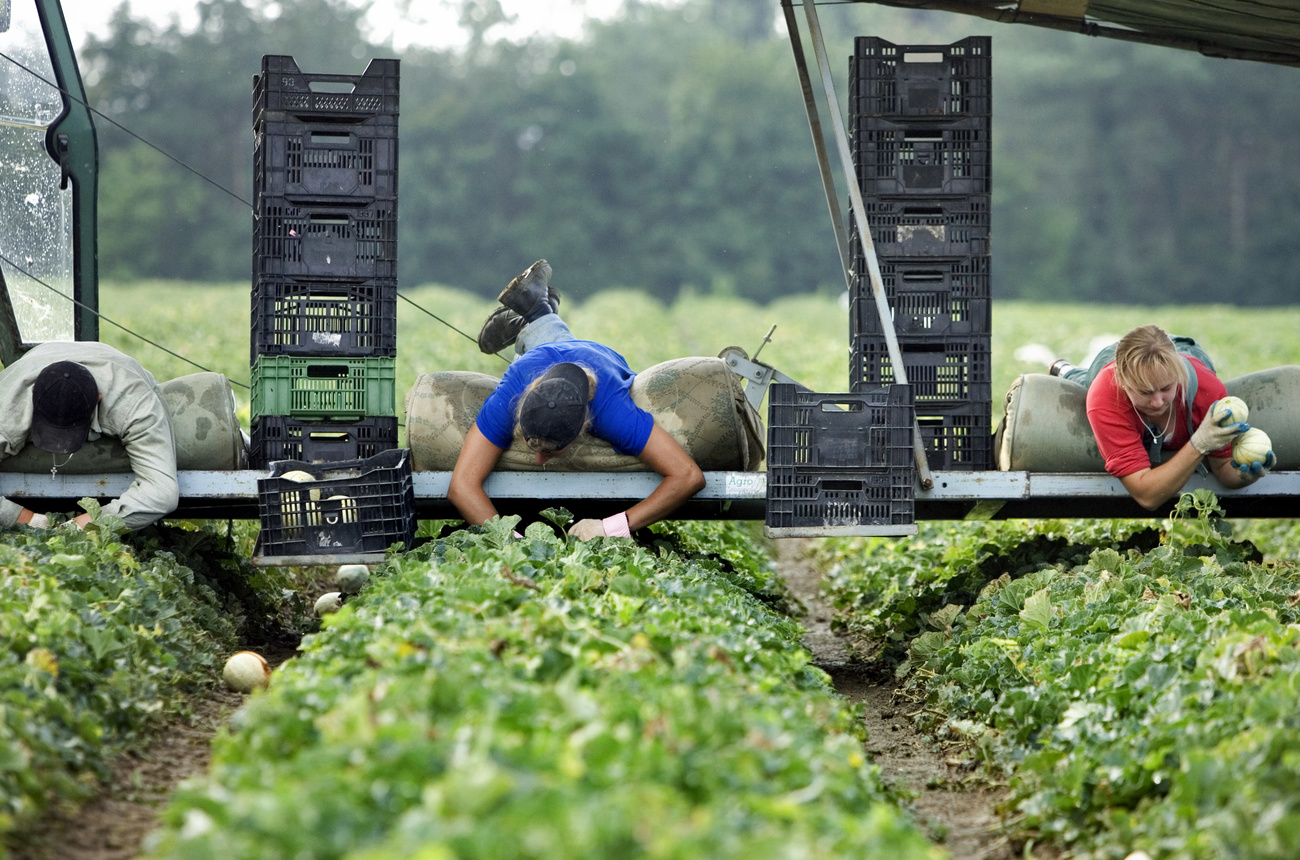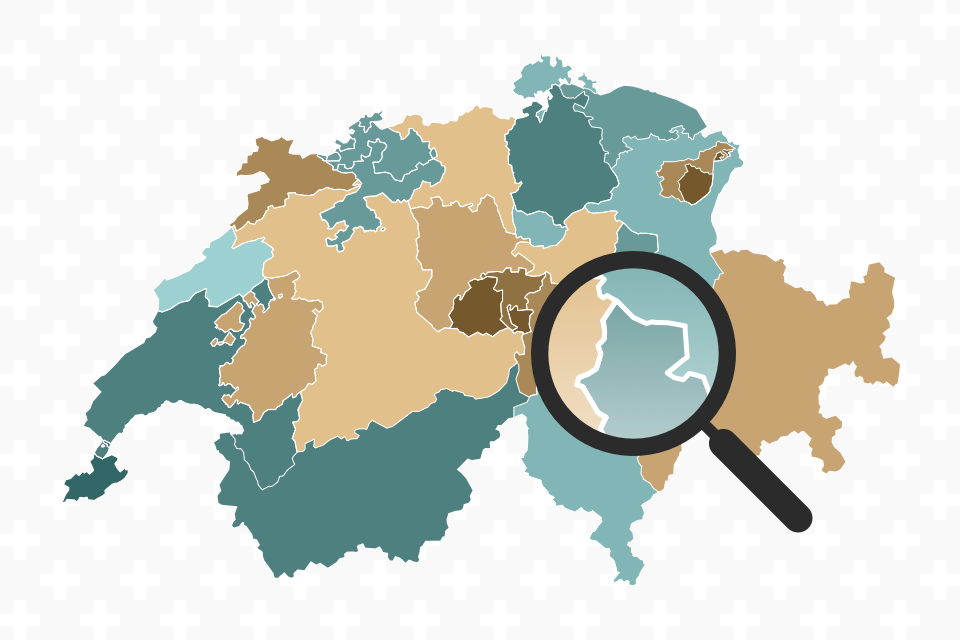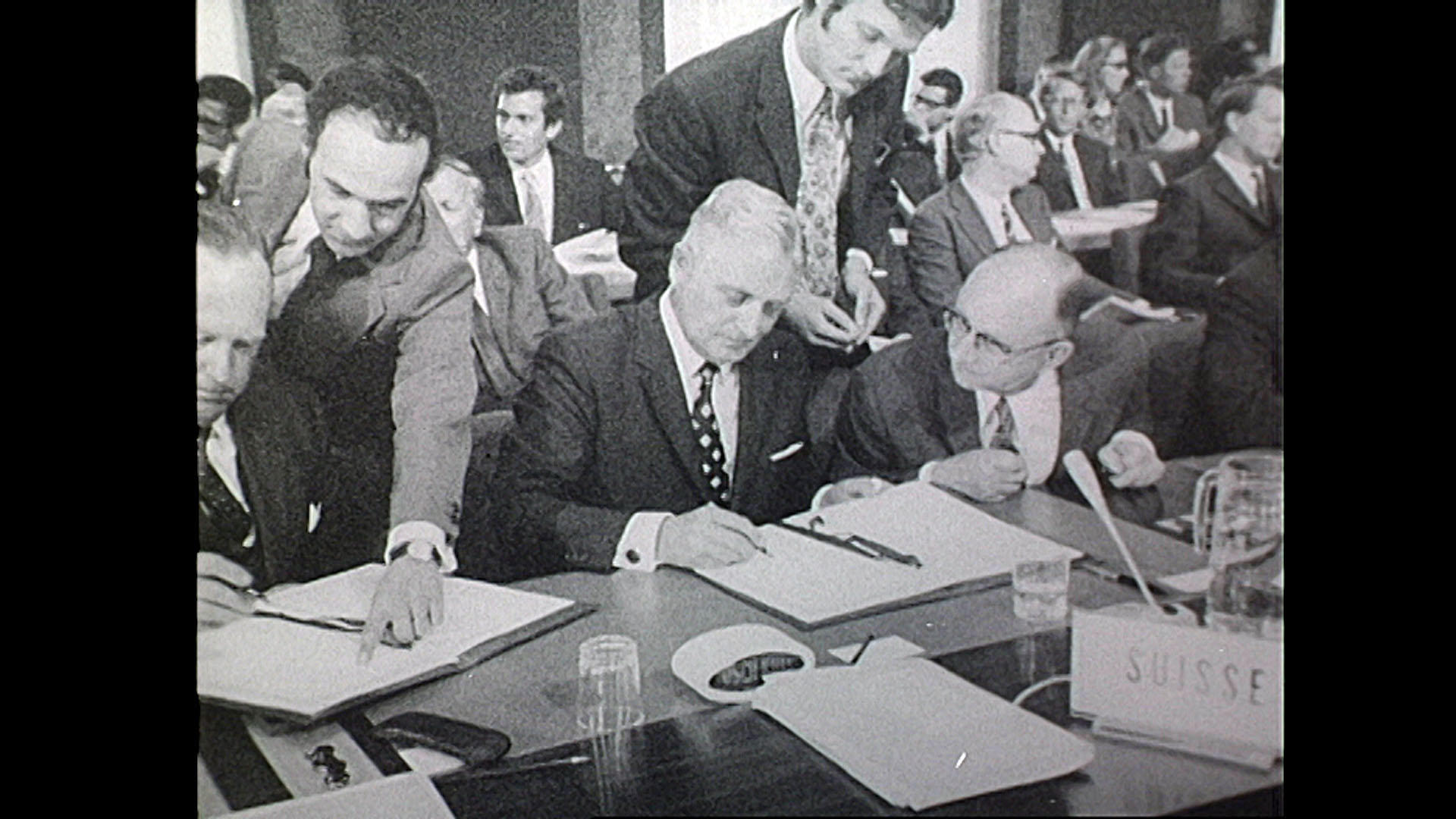
Swiss rebuff right-wing plan to curb EU immigration

Voters in Switzerland have dismissed a right-wing proposal to scrap a major immigration accord with the European Union.
Final results from Sunday’s ballot show the anti-immigration initiative was rejected by 61.7% of voters in line with recommendations by the government, parliament, the business community, trade unions and many civil society groups.
The right-wing Swiss People’s Party which had launched the initiative, won a majority in four of the country’s 26 cantons, notably in Ticino, a region neighbouring northern Italy. The French-speaking part of the country unanimously rejected the proposal, while some rural cantons in the German-speaking Switzerland came out in favour.
“It shows that the Swiss People’s Party was not able to pick up significant support beyond its grassroots,” said Urs Bieri, political scientist at the leading GfS Bern research institute.
Justice Minister Karin Keller-Sutter said the result was another confirmation by voters of the government’s policy of bilateral accords with Switzerland’s main trading partner.
“Its also good news for our European partners as Swiss citizens voted for stable relations with the EU,” she told a news conference. She added that bilateral treaties were the best possible foreign policy solution.
Keller-Sutter said the government would decide in the next few weeks on a proposed legal framework to regulate the more than 120 bilateral accords.
For his part, the People’s Party president, Marco Chiesa, said blamed the Covid-19 crisis for the defeat of the right-wing group.
He said the campaign was an uphill battle against an overpowering opponent. “But we will continue to fight for the country and take back control of immigration,” he said.
In a first reaction, EU officials have welcomed the result. “It’s a beautiful Sunday for democracy and Europe,” said Paolo Gentiloni, the European Commissioner for Economy.
Independence
The proposal wanted the Swiss government to shelve the two-decade-old agreement on the free movement of people and regain full control of the country’s immigration policy.
The political right argued that the free movement policy – which allows EU citizens to work in Switzerland and vice-versa – has led to overpopulation, strains on the environment and infrastructure, and exploitation of the social security system.
The People’s Party, which alleges that free movement has led to an influx of one million people in the past 13 years, claimed it is all getting “too much” and that the government must negotiate a new deal with Brussels.
Prosperity and skilled labour
A broad alliance of political parties and civil society groups – including the expatriate Swiss community – came out against the immigration curbs.
They said scrapping the free movement accord would jeopardise Switzerland’s economic prosperity and labour rights as well as scupper a set of six other bilateral accords on trade, transport and research in force since 2002.
The government warned of disastrous consequences for Switzerland, saying a yes vote would be “worse than Brexit”.
Opponents of the initiative also warned that strained relations with Brussels would add more pressure on businesses and lead to a shortage of skilled workers in Switzerland.
They argued the EU will not be willing to give up the free movement of people policy, a key principle of the 27-nation bloc – allegations dismissed by campaigners from the Swiss People’s Party.
Saturation
Political scientists attribute the perceived lack of intensity in campaigning to an altered political, social and economic context from five years ago, when voters narrowly accepted a similar proposal to curb immigration from the EU.
This time around, the Covid-19 pandemic has dominated headlines while the refugee crisis is no longer as present as it was in 2014.
The pandemic also led to the vote being postponed by several months, while hygiene rules have narrowed the scope of physical campaigning.
Pollsters also said that Swiss voters may have become increasingly tired of debates about immigration and relations with the EU.
Over the years, citizens have been asked at least a dozen times about either boosting ties with the EU or reversing integration with Europe. The immigration issue has accounted for more than 40 votes in half a century.

More
Vote results: September 27, 2020
A landmark vote in 1992 ended in a victory for the conservatives who rejected membership of the European Economic Area – a half-way house towards joining the EU. This result paved the way for a series of high-profile bilateral accords at the turn of the millennium.
But the government’s foreign policy suffered another setback in 2014 when voters approved a right-wing proposal to re-introduce quotas for immigrants from the EU.
Parliament’s subsequent insistence on an implementation of the restrictions which was compatible with international accords angered even further Switzerland’s political right, which is often driven by anti-establishment sentiments. After collecting the necessary signatures two years ago, they forced the vote that took place on Sunday.
Regardless of the outcome, the controversy over Switzerland’s Europe policy is likely to continue with fierce debates in store about a so-called “umbrella” accord with the EU.
Anti-immigration initiative: 38.3% Yes 61.7% No
Credit for fighter jets: 50.2% Yes 49.8% No
Paternity leave: 60.3% Yes 39.7% No
Tax breaks childcare: 36.8% Yes 63.2% No
Reform hunting law: 48.1% Yes 51.9% No
Turnout: 59.4%
It was the second set of nationwide votes this year. A ballot scheduled for May was cancelled due to the Covid-19 crisis.
Around 5.4 million Swiss citizens, including registered expatriate Swiss, were eligible to take part in the votes.
There were also numerous ballots at cantonal and local levels on September 27.

More
Swiss-EU relations: the key milestones

In compliance with the JTI standards
More: SWI swissinfo.ch certified by the Journalism Trust Initiative






























You can find an overview of ongoing debates with our journalists here . Please join us!
If you want to start a conversation about a topic raised in this article or want to report factual errors, email us at english@swissinfo.ch.